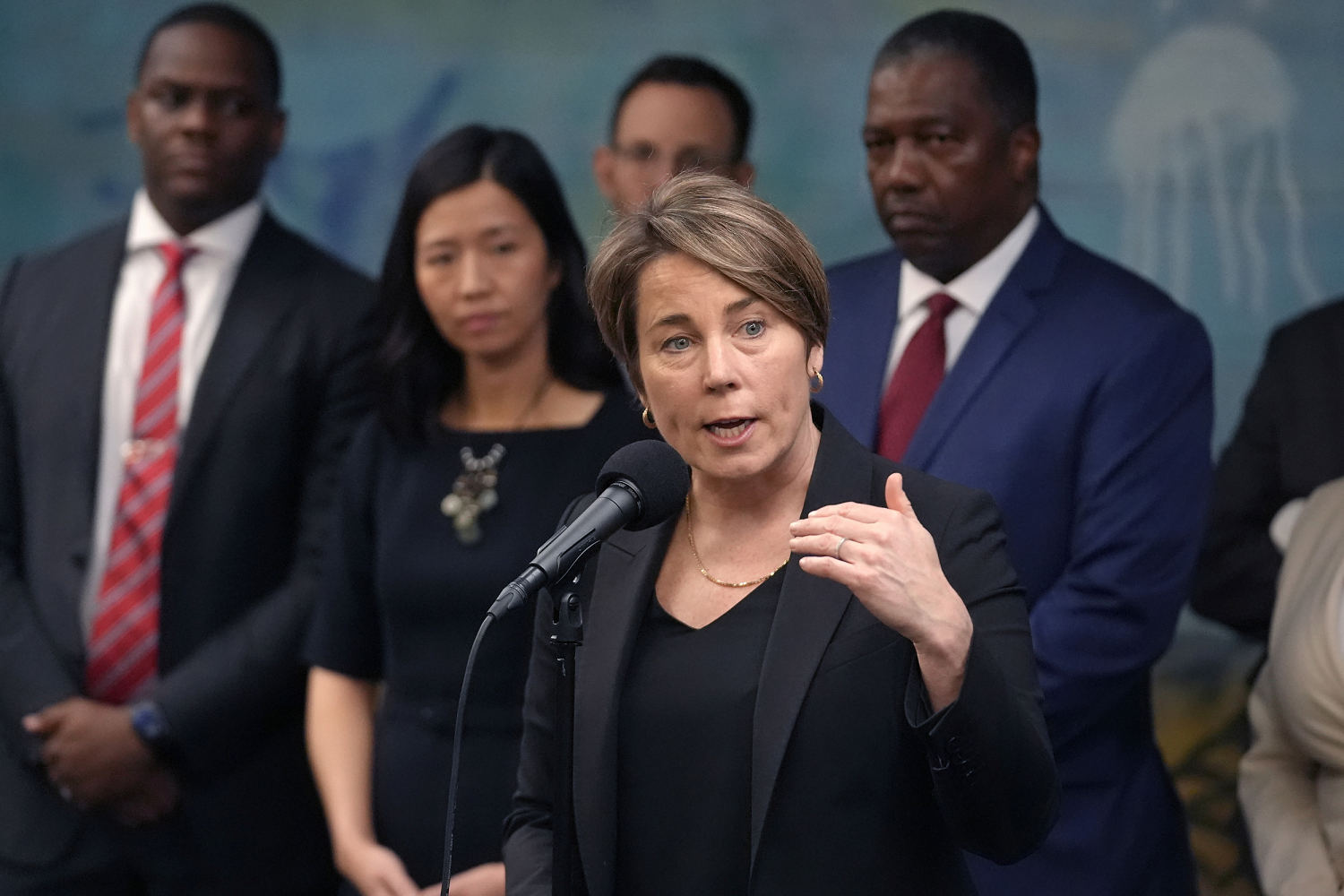Massachusetts places historic limit on families seeking homeless shelter


Massachusetts Gov. Maura Healey signed a spending bill Tuesday that will enforce a time limit on stays in the state’s emergency shelter system, reversing a 40-year-old “right to shelter” for families and pregnant women.
The legislation — which includes $251 million for shelters starting this fiscal year — will enforce a nine-month limit on stays in the system starting in June, but the law also allows for two 90-day extensions following that initial time limit.
Healey said the spending bill “dedicates resources to balance the budget and maintain critical services and programs,” in a statement to NBC News Wednesday.
“It also implements a length of stay policy for Emergency Assistance shelter, which is a responsible step to address our capacity and fiscal constraints as Congress has continued to fail to act on immigration reform,” the statement continued.
Healey added that her office is “finalizing details” in the coming weeks to “ensure that families and providers are informed of the requirements and the services that we have available to help them secure work and stable housing.”
The law also requires the Executive Office of Housing and Livable Communities, which oversees the state’s emergency shelter system, to establish a rehousing plan that includes case management for those leaving shelters. Families will be eligible to apply for extensions to their stays based upon things like whether they are pregnant or recently gave birth; their veteran status, employment status or participation in workforce training; their imminent placement in housing; or their need to avoid educational interruptions for children in public schools.
Extensions will also be considered for those diagnosed with a disability or medical condition; single parents caring for disabled children or family members or single parents without adequate child care; and those at risk of harm from domestic violence.
Massachusetts was the only state to have a “right to shelter” law to provide housing for families and pregnant women indefinitely. But the state’s system has faced historic challenges because of an increase in resident homeless families — who are facing one of the most unaffordable housing markets in the country — and an influx of migrant families who find themselves in need.
The shelter system has housed approximately 7,500 families since Healey set a cap at that number in October, saying in a statement that the shelter system was becoming “unsustainable.”
Healey referred to the remarkable change in the amount of families who qualified for shelter in recent months. According to the Executive Office of Housing and Livable Communities, the number of families in state shelters jumped from just under 4,000 in March of 2023 to over 7,500 in April of this year — with another 700 families on the shelter waitlist.
According to the Massachusetts Coalition for the Homeless, a little over half of the current 7,500 families in the state’s emergency shelter system are those who recently came to the state as refugees or migrants.
State Rep. Aaron Michlewitz, the Democratic chair of the House Ways and Means committee, which was involved in negotiations with the state Senate on the legislation, told NBC News before it passed that even with its potential enactment, Massachusetts would still have one of the most generous shelter systems.
“It’s still one of the most generous, it is probably the most generous program in the country, in terms of what it provides,” Michlewitz said. While some other major cities like Chicago and New York allow only short stays in their shelter systems, “we’re talking months here in Massachusetts,” he said.
Shelter directors have argued against the nine-month stay, pointing to data from the Executive Office of Housing and Livable Communities which finds that the average length of stays for families in the system is nearly twice as long, at about 16 months.






